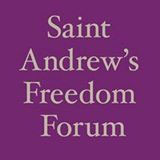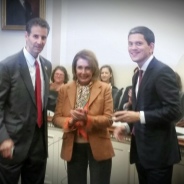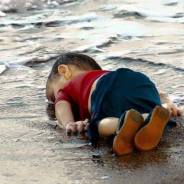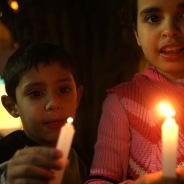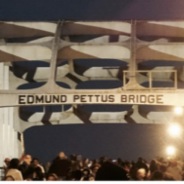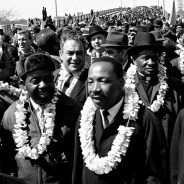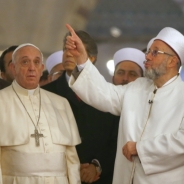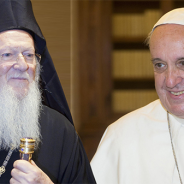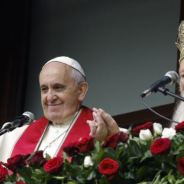Blog
FIFTH ANNUAL CONGRESSIONAL SAINT ANDREW’S HUMAN RIGHTS & RELIGIOUS FREEDOM RECEPTION
Please take a moment to watch David Miliband, President & CEO of the International Rescue Committee and former Foreign Secretary of the United Kingdom discuss the refugee crisis at this year’s annual Congressional Saint Andrew’s Human Rights and Religious Freedom Reception. For more information on the work of the International Rescue Committee please visit...
read moreThe Syrian Refugee Crisis Explained Perfectly With a Simple Animation & Video
In September 2015, the body of a three-year-old Syrian boy was found floating on the shores of the Mediterranean Sea. Photographs of the boy were quick to get circulated world over, and the world responded with a massive outcry over the Syrian civil war and refugee crisis. This was the first time the Syrian crisis was globally recognized as a burning issue, and one that needs to be addressed with utmost urgency. This video speaks about how the Syrian crisis is an international issue, and how it all started with countrywide unrest and the civil war in Syria. Apart from the succinct explanation of the overarching issue, the video also explains the role of the neighbouring countries in aiding and giving asylum to refugees in their greatest hour of need. Watch this video to get a better understanding of the larger Syrian issue and learn about what measures we can take to offer help to the affected people. By: by Arushi Kapoor 18 September, 2015...
read moreThe Plight of Christians in the Middle East – Supporting Religious Freedom, Pluralism, and Tolerance During a Time of Turmoil
By Brian Katulis, Rudy deLeon, John B. Craig | Thursday, March 12, 2015 Some of the oldest Christian communities in the world are disappearing in the very lands where their faith was born and first took root. During the past decade, Christians around the Middle East have been subject to vicious murders at the hands of terrorist groups, forced out of their ancestral lands by civil wars, suffered societal intolerance fomented by Islamist groups, and subjected to institutional discrimination found in the legal codes and official practices of many Middle Eastern countries. The past year has seen brutal atrocities committed against Christians and others because of their religious identity by terrorist groups such as the Islamic State in Iraq and al-Sham, or ISIS. These incidents underscore the gravity of the situation. As a consequence, Christians have migrated from the region in increasing numbers, which is part of a longer-term exodus related to violence, persecution, and lack of economic opportunities stretching back decades. They have also moved to safe havens within the Middle East, and the Christian presence has become more concentrated in places such as Jordan, the area controlled by the Kurdistan Regional Government in Iraq, and Lebanon. Today’s overall Christian community in the Middle East is estimated to range from 7.5 million to 15 million individuals, with the largest numbers living in Egypt, Syria, and Lebanon. These estimates vary considerably because of the massive waves of forced migration over the past decade and the sharp growth in the number of Christians from the Middle East living in exile since the start of the new millennium. The total number of Christians remaining in the region has increased numerically since the start of the 20th century, but substantial growth in the non-Christian population combined with decades of migration mean that Christians represent less than 5 percent of the region’s overall population. In some places such as Turkey, this declining Christian presence has taken place over the past century. During World War I, 1915 was a particularly devastating year for Christians in the region. A century after those events resulted in the death and forced migration of millions of Christians, the current wave of extremism, civil wars, and a complicated mix of state collapse in some places combined with the re-emergence of authoritarianism are leading to a new wave of victims. The ongoing decline is such that many Christians in the Middle East today fear that their churches will turn into museums, rather than places of worship serving vibrant communities of believers. The Middle East uprisings that began in 2011 have created new pressures on Christians, other religious groups, and nonbelievers. More than four years after the start of the uprisings, the status of Christians varies considerably across the region. In Egypt and Lebanon, there is a stronger sense of protection and security for Christians than in places such as Syria and Iraq. But the overall picture looks grim, and the reactions from the United States, Europe, and other key powers to this new wave of destruction have been marginal. The goal of this report is to offer an overview of the status of Christians in the Middle East at this moment in time and to suggest practical and effective ways for the United States to engage on this issue. The status of Christians in the...
read moreON THE ROAD TO SELMA
On March 6, 2015, a delegation of the Saint Andrew’s Freedom Forum traveled from New York City and Washington, DC to Selma, Alabama to commemorate the 50th Anniversary of the March on Selma. The March on Selma catalyzed the passage of the 1965 Voting Rights Act, which enabled the broader – and fairer – participation of African-Americans in our nation’s democratic experience. The decision of Archbishop Iakovos to join Dr. Martin Luther King Jr., in the March on Selma also proved a seminal moment for Hellenism and the Orthodox Christian community in the United States. For a description of the circumstances surrounding Archbishop Iakovos’ trip to Selma, read Sometimes The World Is Black and White, by Dr. Alexandros K. Kyrou, Professor of History at Salem State University. When Archbishop Iakovos marched in Selma, he was not only serving as the leader of the Greek Orthodox Church of North and South America, but also as one of the presidents of the World Council of Churches and the Vice-President of the National Council of Churches. In Selma, Archbishop Iakovos joined Dr. King at Brown Chapel AME in eulogizing Reverend James Reeb, the Unitarian Universalist minister from Boston who was killed by the Klu Klux Klan for answering Dr. King’s call to come to Selma. After the eulogy service, Dr. King and Archbishop Iakovos marched with 4000 civil rights activists to the Selma Courthouse demanding justice. In front of the locked building, Dr. King and Archbishop Iakovos were captured in a photograph that appeared on the cover of the March 26, 1965 edition of Life Magazine. By traveling to Selma, Archbishop Iakovos overrode his advisors. Click here to see the video of Archbishop Iakovos reflecting on the March on Selma. Screen shot WCNC interview We drove to Selma because we wanted to honor the memory of Rev. Reeb, Dr. King, Archbishop Iakovos and the countless activists who risked life and liberty to challenge injustice. Our presence was also meant to raise awareness of the role that Hellenism and Orthodoxy played in the Civil Rights Movement and bring attention to the many challenges modern society faces including social inequality and poverty. En route to Selma, we were hosted in Charlotte, North Carolina at the historic Open Kitchen Restaurant by proprietors Christina, Lena and Stephanos Skiouris, where we were joined by members of the local community and were interviewed by Ben Thompson WCNC News who aired our “drive to Selma” on local television and brought attention to the relationship between Hellenism, Orthodoxy and the Civil Rights Movement. In Selma, we joined with tens-of-thousands of people celebrating the civil rights activists who had challenged America’s pernicious history of racial inequality. While we were moved by history when crossing the Edmund Pettus Bridge, visiting Browns Chapel AME and the beauty of the Alabama river and the rustic countryside, there was no escaping the fact that after the politicians and celebrants decamped for home, Selma would continue on as one of the poorest communities in America. Since the passage of the Voting Rights Act, there have been tremendous strides in race relations that give credence to America’s promise of an ever more perfect union. Yet, endemic poverty in many of America’s marginalized communities undermines our nation’s social fabric. From Ferguson, Missouri and more recently in Baltimore, Maryland, we are witnessing the ills of an endemic poverty that breeds...
read moreSometimes the World is Black and White: Archbishop Iakovos and the Lesson of Selma
March 15 marks the half-century anniversary of the culmination of a dramatic series of events in American Civil Rights history that have been seared into the country’s national consciousness, events now remembered simply as “Selma.” On that day, captured for posterity in a moving cover photograph for LIFE magazine, the leader of the Civil Rights Movement, Rev. Martin Luther King, Jr., and the leader of the Greek Orthodox Church, Archbishop Iakovos, appeared together on a prominent national stage. They were brought together by recent violence, tragedy, and murder that had taken place in Selma, Alabama. Risking their jobs, their homes, and their families’ physical safety, African-American residents in and around Selma, Alabama, took the first steps beginning in January 1965 in what would become a fateful civil rights campaign. Initiated by student activists and organized by ministers from the Southern Christian Leadership Council, local blacks attempted to register to vote, a basic civil and political right that they had been denied for generations after the post-Civil War Reconstruction in the South. Town and county officials repeatedly turned away all black citizens as they rejected every attempt by African Americans to register to vote. In response, the disenfranchised black community joined together in marches and peaceful demonstrations. Despite constant intimidation and provocations from local and state police, civil rights protesters continued to rally and march peacefully in adherence to the Christian principle of non-violent civil disobedience. Frustrated by their failure to silence the Selma protests, Alabama police authorities, now joined by members of the Ku Klux Klan, militant segregationists, and other white supremacists, turned to open violence. On February 17, state troopers fired on and attacked a group of marchers in the nearby-town of Marion, killing a young Baptist deacon, Jimmie Lee Jackson, and wounding several others. In response to the killing and violence in Marion, the leaders of the Southern Christian Leadership Council prepared a march to take place from Selma to the state capitol of Montgomery, a distance of more than fifty miles. On Sunday, March 7, some 600 marchers assembled outside a black community church in Selma to begin the journey to Montgomery. As they approached the Edmund Pettus Bridge (ironically, named in honor of a Confederate general) over the Alabama River they were blocked, mockingly ordered to disperse, and then violently attacked by state troopers and local police. Firing teargas canisters, mounted police and police on foot charged into the column of marchers, clubbing and beating both male and female protestors, ultimately hospitalizing more than 50 people. The police rampage was broadcast by television around the world. News and images of the violence stirred outrage across the country. In the view of many scholars, “Bloody Sunday,” as the violent event came to be known, and the following week of developments culminating on March 15, marked the critical turning point in the history of the Civil Rights Movement. In response to the events of March 7, Rev. Martin Luther King, Jr., sent telegrams to prominent religious and civic leaders urging them to join him in protest in Selma against the recent violence. Hundreds of supporters responded and began arriving in Selma over the next several days. Shortly after his arrival in Selma, one of those supporters, Rev. James Reeb, a young white Kansas-born Unitarian Universalist minister and...
read moreInterfaith dialogue vital to face today’s challenges, Christian-Muslim gathering hears, Ecumenical News
Pope Francis listens to Rahmi Yaran, Mufti of Istanbul (R) during a visit to Sultan Ahmet mosque, popularly known as the Blue Mosque in Istanbul November 29, 2014. Pope Francis began his visit to Turkey with the delicate mission of strengthening ties with Muslim leaders while condemning violence against Christians and other minorities in the Middle East.Photo: REUTERS / Tony Gentile Interreligious dialogue and opening hearts and minds to others are needed to face today’s troubled times, participants in the Third Catholic-Muslim Summit held in Rome last week said. “Our meeting here, I would think, is a sign of hope for our troubled world. “It is a message to all humanity, especially to us, the members of the great family of Abraham – the Jews, the Christians, and the Muslims,” said Cardinal Jean-Louis Tauran, president of the Pontifical Council for Interreligious Dialogue. He spoke following the December 2-4 meeting, which was entitled “Christians and Muslims: Believers living in Society.” Along with Tauran, summit leaders included Prince Hassan bin Talal of Jordan; Mostafa Mohaghegh Damad, an ayatollah and director of Islamic Studies at Iran’s Academy of Sciences; and John Bryson Chane, a bishop in the U.S. Episcopal Church. Also attending was Metropolitan Emmanuel of France, representing the Ecumenical Patriarchate of Constantinople, and Rabbi Abraham Skorka, from Buenos Aires, Argentina. Rabbi Abraham Skorka, a friend of Pope Francis, said at the summit, saying, “In the 20th century were consummated horrible crimes in the name of new anthropomorphic religions. Nazism and Stalinism killed millions of human beings on the altar of their fanatic and insane beliefs.” Bishop Chane stressed that “Christianity and Islam have at this moment in time a great opportunity to work together effectively with governments and civil societies currently in turmoil,” the Catholic News Agency reported “They can begin to re-shape a culture of peace in a world too much torn apart by sectarian violence and political pilfering. Christianity and Islam can and must be the bridge builders of the 21st century,” he concluded. Prince Hassan bin Talal said “the schisms in the world today have become so numerous, the inequities and inequalities so stark, that a universal respect for human dignity must once again be brought back to the consciousness of the international community. “Now, more than at any other time, an ethic of human solidarity and a new international order are required.” Participants agreed a renewed Christian and Muslim dialogue is needed now, starting from mutual acceptance so as to find a common path. Cardinal Tauran noted that “the legitimate differences – ethnicity, religion, culture, political choices – should not be a reason for refusing the other, ignoring him or her, marginalizing, persecuting, or even eliminating him or her, as is unfortunately the case in our days, especially in Iraq and in Syria, and in particular towards the Christians and Yazidis.” The Christian-Muslim Summit is a gathering of Christian and Muslim leaders from around the world. At it, experts from both religious traditions come together for interreligious and intercultural relationship building and to address issues of conflict that exist between religions and nations. Pope Francis met the summit participants on December 3, reminding them that dialogue is “the path to peace.” The fourth summit is expected to be held in Iran, CNA reported....
read morePope Francis’ Pilgrimage to Turkey Reflects Past and Future
Like a firefighter compelled to enter a dangerous space, not avoid it, Pope Francis is on a mission to Turkey, a land so significant to the birth and early growth of Christianity, yet stunted in the all-important tasks of calming regional tensions and improving Christian-Muslim relations. The country has changed in significant ways since the last papal visit, in November 2006, when Pope Benedict XVI faced the same two leaders: Recep Tayyip Erdogan, then prime minister, now President; and Ecumenical Patriarch Bartholomew I, spiritual leader of the 260 million-member Orthodox Christian Church, based in Istanbul, once known as Constantinople. Anti-Christian hostility — against all Christians, whether Catholic, Orthodox or Protestant — has increased in the last eight years, both domestically and in Turkey’s immediate neighborhood. Pressure on the ecumenical patriarch of Constantinople has also increased from Turkish authorities and within the family of Orthodox Churches, especially from the Russian Orthodox Church. Pope Francis has developed a close bond with Ecumenical Patriarch Bartholomew and wants progress toward Christian unity to continue — which is the main reason for this trip. But external actors with less-peace-driven goals than Pope Francis’ could easily drown his delicate efforts; in our world, it seems far easier to cause trouble than to make peace. Embodying History Pope Francis, in word and deed, embodies the apostolic succession. His itinerary mimics the path followed by Pope Benedict XVI, whose silent prayer in Istanbul’s Blue Mosque was a huge gesture of respect toward Islam, positively noted by the Muslim world. In his equanimity toward the mercurial Turkish government, Pope Francis is following Pope St. John XXIII, who, as Angelo Roncalli, spent 10 years (1934-44) as apostolic delegate to Turkey and Greece. Archbishop Roncalli was fluent in Turkish, allowed Turkish to be used in Church ceremonies and documents and became one of the most popular and influential diplomats in the country. He used this influence on behalf of the Church — the government agreed to uncover Christian mosaics in the Hagia Sophia, for example — and on behalf of the persecuted, such as Jews fleeing Europe, whom he helped transit Turkey in order to get to Palestine. Pope Francis and Patriarch Bartholomew have already marked, in Jerusalem earlier this year, the accomplishment 50 years ago of their predecessors, Pope Paul VI and Patriarch Athenagoras I, who, together, resuscitated relations between the Catholic and Orthodox Churches by meeting in 1964 in the Holy Land. Three years later, Pope Paul VI traveled to Turkey as the first Catholic pope to visit in more than 1,000 years. On this trip, Pope Francis continues the pursuit of Christian unity as he celebrates with Bartholomew the Nov. 30 feast of St. Andrew the Apostle — and St. Peter’s brother — who founded the Christian Church in the East. St. John Paul II’s spirit travels with the Holy Father in the conviction that personal encounter is the key to deeper sympathy and understanding. And, of course, in the main outline of his message — that violence in the name of religion must be actively opposed by all and that division between Catholic and Orthodox Christians offends God’s will — the Holy Father echoes his righteous predecessors of the contemporary era. Tense Times On several visits to Turkey over the last two years, I’ve noted that...
read moreWho is the pope, who is the ecumenical patriarch?
If you do not know Turkey, you may get the impression that President Recep Tayyip Erdoğan and his government have huge admiration for the pope but are allergic to the ecumenical patriarch. Namely, you may be very confused how and why the Turkish government differentiates so tremendously in its treatment of the religious leaders of the Orthodox and Catholic sects of Christianity. In Turkey the pope was treated like he is one of the most important statesmen in the world. Erdoğan met him at the gates of his palace after waiting there impatiently for a long time. We saw pictures of how Erdoğan happily extended his forehead to be kissed by the pope. While the religious leader of the Catholics was welcomed like that, the religious leader of the other sect of Christianity, Ecumenical Patriarch Bartholomew, is being regarded somehow as a figure whose counterpart in Turkey is the district governor of Eyüp, to which the patriarchate is considered to be attached. President Erdoğan and the Justice and Development Party (AK Party), who treated the pope as if he is the president of the United States, refuse to recognize the ecumenical character of the Greek Orthodox Church in İstanbul. They say it is just the Greek Orthodox Church, namely that the patriarchate only represents a handful of Orthodox Christians in İstanbul. President Erdoğan and the AK Party, who are very respectful of the pope, do not even allow the reopening of the Halki Theological School, from which many of the ecumenical patriarchs graduated. They say they will open the school on the condition that a mosque is opened in Athens. They easily overlook the fact that a school and a church are not counterparts to each other and that there is no such thing as “reciprocity” in the field of human rights. The Halki Theological School has nothing to do with a mosque in Athens. So, the question remains wide open. Why did the same government that treated the pope with so much respect put the ecumenical patriarch in such a difficult position? Why does the Turkish government differentiate so much in its treatment of different sects of Christianity? And, ironically, if you ask the members of the AK Party how the Orthodox differ from the Catholics, most probably very few of them would be able to answer your question in a satisfactory manner. Therefore, we can say this discriminatory treatment of different sects of Christianity has nothing to do with theological matters. The AK Party is just demonstrating the old state reflexes that regard the ecumenical patriarchate and religious minorities of this country as a threat. And I believe there is another part of this story. Like individuals who have low self-esteem, states and societies only pay respect to those who are distant from them, who are outsiders and so on. The pope is from another country; he is a foreigner, whereas the ecumenical patriarch is from Turkey and is someone living in our district. I believe one day Turkey will treat the ecumenical patriarch as it treats the pope now — when this country has real confidence, when there is real self-esteem, and when there is real freedom of religion in this country. – Orhan Kemal...
read moreCongressman John Sarbanes Organizes Inaugural St. Andrew’s Human Rights and Religious Freedom Reception
Rep. Sarbanes – St. Andrew’s Press Release The Annual Saint Andrew’s Human Rights and Religious Freedom Reception began on November 30, 2011. At this inaugural reception a short documentary film called the “Apostle of Love, Hope and Reconciliation” that details the work of Ecumenical Patriarch Bartholomew , who is the 270th successor of the Apostle Saint Andrew was viewed by a diverse multi-cultural and interfaith audience. An introductory presentation was offered by Peter Marudas before the viewing of the film. Click here for press...
read moreIvan Vejvoda
In 2012 Ivan Vejvoda, Vice President of The German Marshall Fund (click here for bio), gave a lecture on “human rights, religious freedom and the role of civil society. Mr. Vejvoda offered insight into the conflicts of the former Yugoslavia, and opined that “we cannot tolerate intolerance.” He also offered further analysis into the conflicts that have been unfolding in the Middle...
read more